Reflective growth: a transformative journey of self-discovery and organizational development
In his article titled “Reflective growth”, shares a twined story of self-discovery and organizational development, inspired by his participation in a well-being workshop.
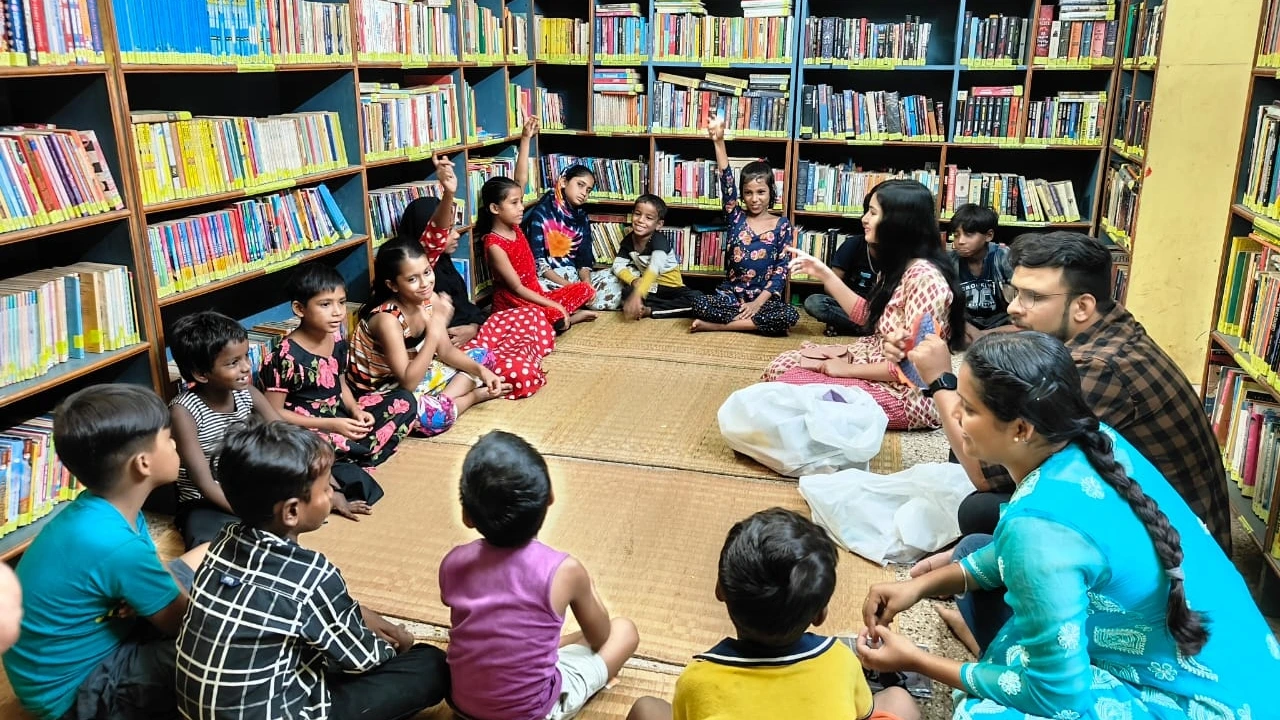
We often experience emotions and thoughts through a personal lens, without examining their validity. We take them for granted, assuming they reflect the truth. Our busy routines and numerous responsibilities can overwhelm us, causing us to prioritize work over relationships and personal care. We rarely pause to consider how others perceive us or whether our actions truly contribute to meaningful outcomes.
As a core member of Ashayen, I often faced the challenge of ensuring similar kind of dedication with my team. There was often a mismatch of interests. This made me realize that our processes for developing second-line leadership were underdeveloped. Sharing a few details about Ashayen may be relevant here.
About Ashayen
Ashayen is a youth forum dedicated to empowering children living in street situations through comprehensive interventions and policy advocacy. It has a decade-long legacy as a grassroot organization. Ashayen now has managed to develop an innovative, home-grown model of community-based rehabilitation approach driving tangible change.
We have done extensive work in Odisha, addressing street children’s unique needs. Our focus has been on direct interventions at the level of communities and schools. We provide holistic development support, with an alternative education model.
Simultaneously we undertake policy advocacy for influencing legislation for lasting impact. We also work toward ecosystem development through national level networking. We try to amplify voices and expertise for fostering partnerships for sustainable change as well.
Currently, we run five community centers and work with 15 government schools in Bhubaneswar. We are now incubating a model centre for street children named Pragati Kendra. This is being undertaken in a non-financial partnership with School and Mass Education Department, Government of Odisha.
Our work has been recognized by State-level media houses such as The Samaj and The Pragatibadi, and by reputed organizations like UNICEF, OSCPCR, KIIT, Commutiny, BIPF, Aarambh India, Edumentum, People for Seva, etc. Many of our children are now driving positive changes at the community level, and are leading other fellow children.
Despite the meaningfulness of the work we are doing and the positive social changes we have been able to drive, we had been feeling that we needed to consolidate our learnings and further deepen the work.
Becoming better at ‘well-doing’ by attending to ‘well-being’
In this context, I attended the “Working toward well-being” workshop by Viridus, aimed at organizational development. I didn’t expect it to turn into a journey of self awareness.
What began as a goal to improve our organization transformed into a deeper exploration of the self. I discovered that everything starts with the individual. I realized how our actions — no matter how small — have a ripple effect on the world around us.
The workshop acted as a mirror. It helped me connect my emotions with broader systems. It also gave me tools to better understand my own reactions.
One of the key insights was that human needs are infinite, as are my own. However, I learned that while our needs may feel endless, it is crucial to set boundaries around happiness and prosperity.
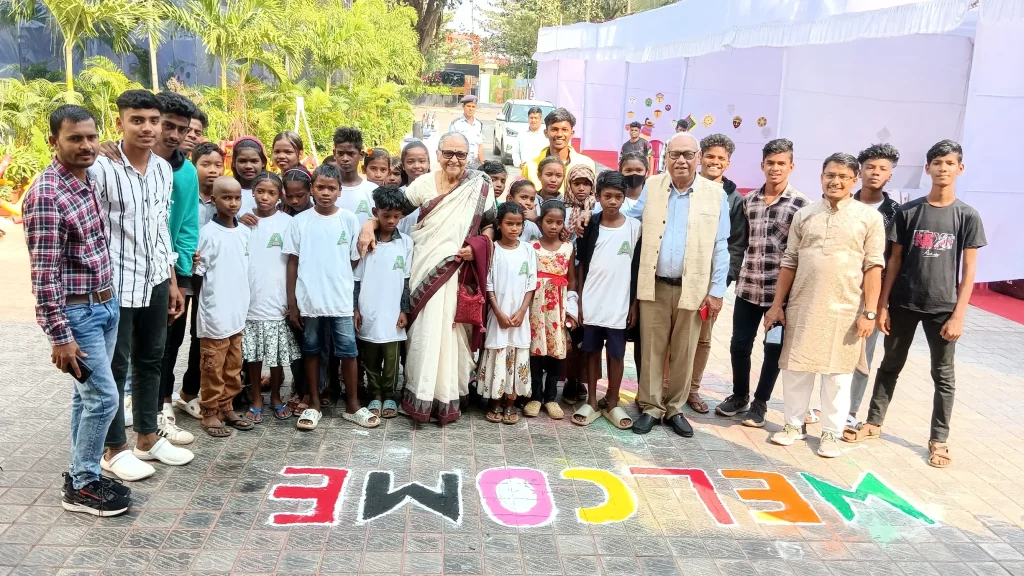
This led me to reflect on a powerful question: Do I seek wealth or true prosperity? Without understanding our needs, no matter how much we accumulate, we will always feel deprived. This realization helped me focus on what truly matters, filtering out distractions and unnecessary desires. At the organizational level, we faced a similar dilemma. As a grassroot initiative, should we scale our operations or refine existing processes? After careful thought, we chose to enhance the systems we already had, focusing on excellence rather than expansion. We aimed to be a resource-driven organization, not one obsessed with growth.
This experience also helped me understand that true happiness comes more from fulfilling psychological needs than from physical ones. In our work with children, we focus on psycho-social support, teaching them not only to succeed but also to serve others.
By helping them share resources with the less privileged, we have seen a deeper sense of responsibility, fulfilment and connection. Senior children now care for the younger ones, fostering trust, respect and ownership.
The complexity of relationships: building true connections
Relationships are at the core of our lives. Yet, they can be the most complicated part of human experience. A small misunderstanding can disturb your zone of emotional resilience. It can linger for weeks, months, or even years.
That is why it is essential to take care of relationships with mutual respect and understanding. True love and care are not about being overprotective or demanding. They are about allowing independence and co-existence.
Many of the children we work with have experienced fractured relationships with their families and communities. For them, and for the other children we work with as well, this understanding is critical.
Over time, we have developed specific modules to help them rebuild trust, love and connection. These efforts have also helped us gain the support of families. They now share the responsibility for their children’s wellbeing and education.
Psychological well-being: the key to unlocking self-awareness
Psychological well-being is about a deep understanding of oneself. It requires stepping back and observing your own thoughts. It also involves being able to judge yourself from a neutral standpoint.
This is only possible when we nurture harmony, clarity, awareness and authenticity in our lives. The workshop by Viridus provided me with the tools to improve my well-being.
This included practicing gratitude, investing in social connections, and living in the present. It also highlighted the importance of taking care of both the body and the soul.
To integrate these practices into our organization, we introduced several initiatives. We share some of these here.
Observation and evaluation: We often make judgments mixed with personal biases. However, by practicing pure observation— separating facts from evaluation—we have helped children and staff focus on constructive feedback. This shift has helped children transition from rude behaviour to more thoughtful and kind interactions.
Forgiveness: Holding onto grudges harms our mental health. We introduced the practice of forgiveness, teaching both ourselves and the children that mistakes are a part of growth.
Embracing self-compassion has created a culture of learning and acceptance. We also acknowledge that new initiatives may involve mistakes, and that’s okay. It’s all part of the journey.
Listening: Active listening is essential to building trust and understanding. We believe that every child has a unique perspective.
Listening attentively allows us to connect on a deeper level. This practice has been invaluable in our work with children and staff alike.
Gratitude practice: Gratitude is more than just a sentiment. It is a daily practice. We have introduced a routine where children and staff reflect on what they are thankful for each day. It may be a person, nature, or a simple moment.
This practice has sharpened their observation skills. It has also helped them appreciate the small things in life.
Taking a pause: Personal space is essential. We have created flexible work hours. This allows team members to adjust, based on their personal needs.
We also encourage open discussions about life challenges. This ensures that everyone feels supported. This practice of emotional resilience has become a core part of our organization.
Learning as a lifelong process: creating opportunities for growth
Learning is a lifelong journey. We understand that growth does not stop at any point of time. We have made it a priority to continuously learn, reflect, and share insights within our organization.
We regularly organize learning sessions. Here, our team members share reflections, explore new ideas, and engage with platforms that encourage out-of-the-box thinking.
By creating a supportive environment, we ensure that everyone has the tools, resources and encouragement to grow. This commitment to lifelong learning keeps us adaptable and ready to tackle new challenges.
Ex-team members: a lasting connection
One of the most beautiful discoveries has been the lasting bond we share with our exteam members. Many of them, after moving on, have returned as dedicated volunteers, continuing to support our mission.
Their connection to the organization remains strong. Their involvement speaks a lot of the meaningful relationships we have built.
What is truly heartwarming is that they acknowledge their time at Ashayen as a key part of their personal and professional growth. Many of them attribute the leadership experience and exposure they gained with us to their current career success and credibility.
This ongoing involvement helps them. It also continues to strengthen our network and mission.
Creating second-line leadership: a path to empowerment
Building second-line leadership is crucial for any sustainable organization. It is about transferring values and trust, so that future leaders can step into roles with confidence.
For us, this has meant empowering senior children to take ownership of their community centers. Many of these children are now team members. They actively contribute to the leadership and management of our projects.
Transparency and clarity have been essential in maintaining trust. This has ensured that our shared mission continues to thrive.
Challenges in practices
Operationalizing the learnings from the wellbeing workshop at Ashayen posed significant challenges. This was primarily due to the required mindset shift for both the staff and the children. Overcoming deeply ingrained habits and organizational norms was a major hurdle.
The transition from a growth-centric mindset to one focused on excellence and refining existing systems was initially met with confusion. Scaling up was often viewed as the primary indicator of success. However, we learned that true impact comes from strengthening the core rather than expanding too rapidly.
Introducing self-awareness and emotional resilience practices in a fast-paced environment was also challenging. Staff members, overwhelmed by responsibilities, struggled to prioritize mental and emotional well-being. Practices like taking pauses, reflecting, and engaging in gratitude exercises felt counterintuitive to the work’s urgency.
Encouraging children who had faced traumatic experiences to embrace practices like forgiveness and active listening required patience and trust-building. Consistent effort created a safe space for self-expression and development of healthier emotional habits.
Despite these challenges, integrating wellbeing practices have become a cornerstone of our culture. By creating a supportive environment, and leading by example, we have embedded these practices in our culture. We see these as essential to both organizational and personal growth.
In conclusion
The workshop on well-being by Viridus was far more than just a learning session. It was a mirror reflecting our beliefs, thoughts and actions. It provided us with a new language to articulate our practices. It also reaffirmed the importance of self-awareness in our work.
This experience has been transformative. It has shaped both my personal growth and the development of our organization.
We have been embracing self-awareness, emotional balance, and meaningful relationships. In the process, we continue to create an environment that supports everyone, from staff to children, in their journeys toward fulfilment.

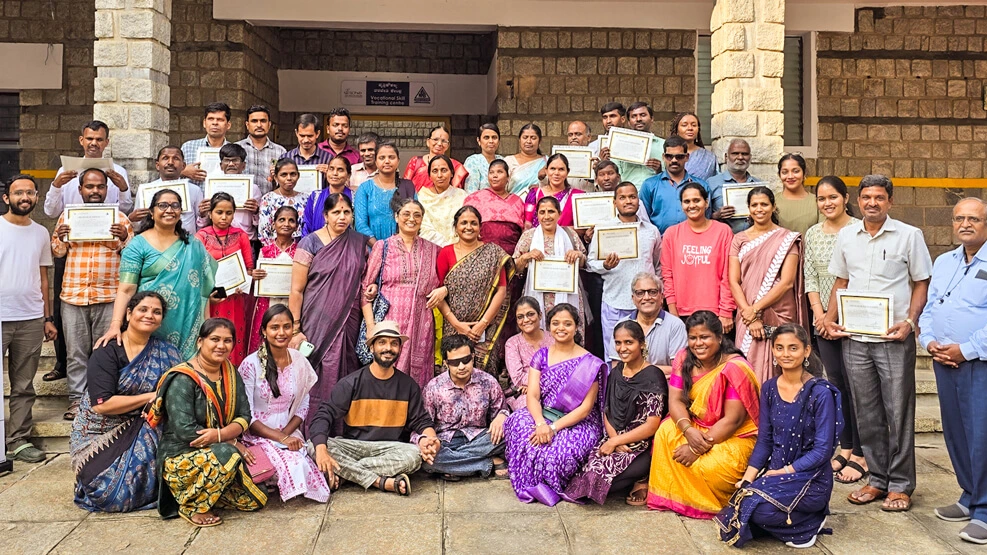
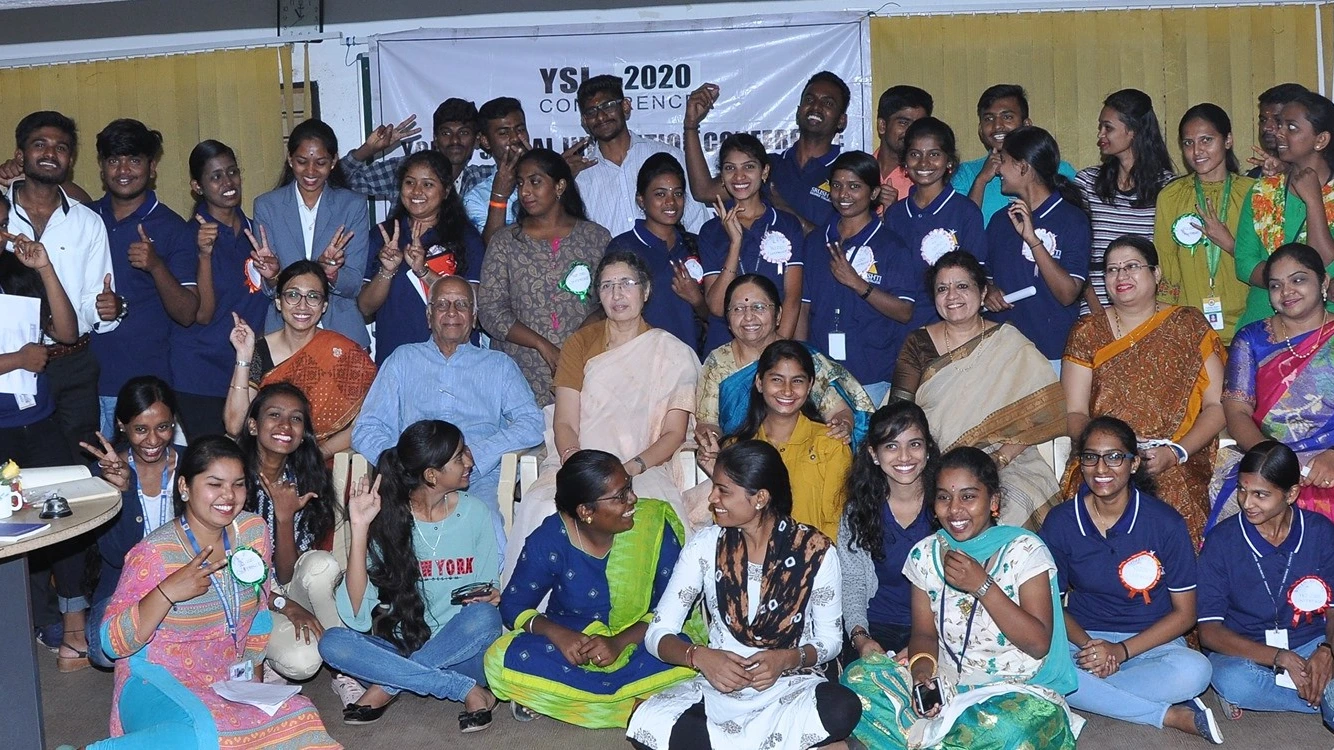
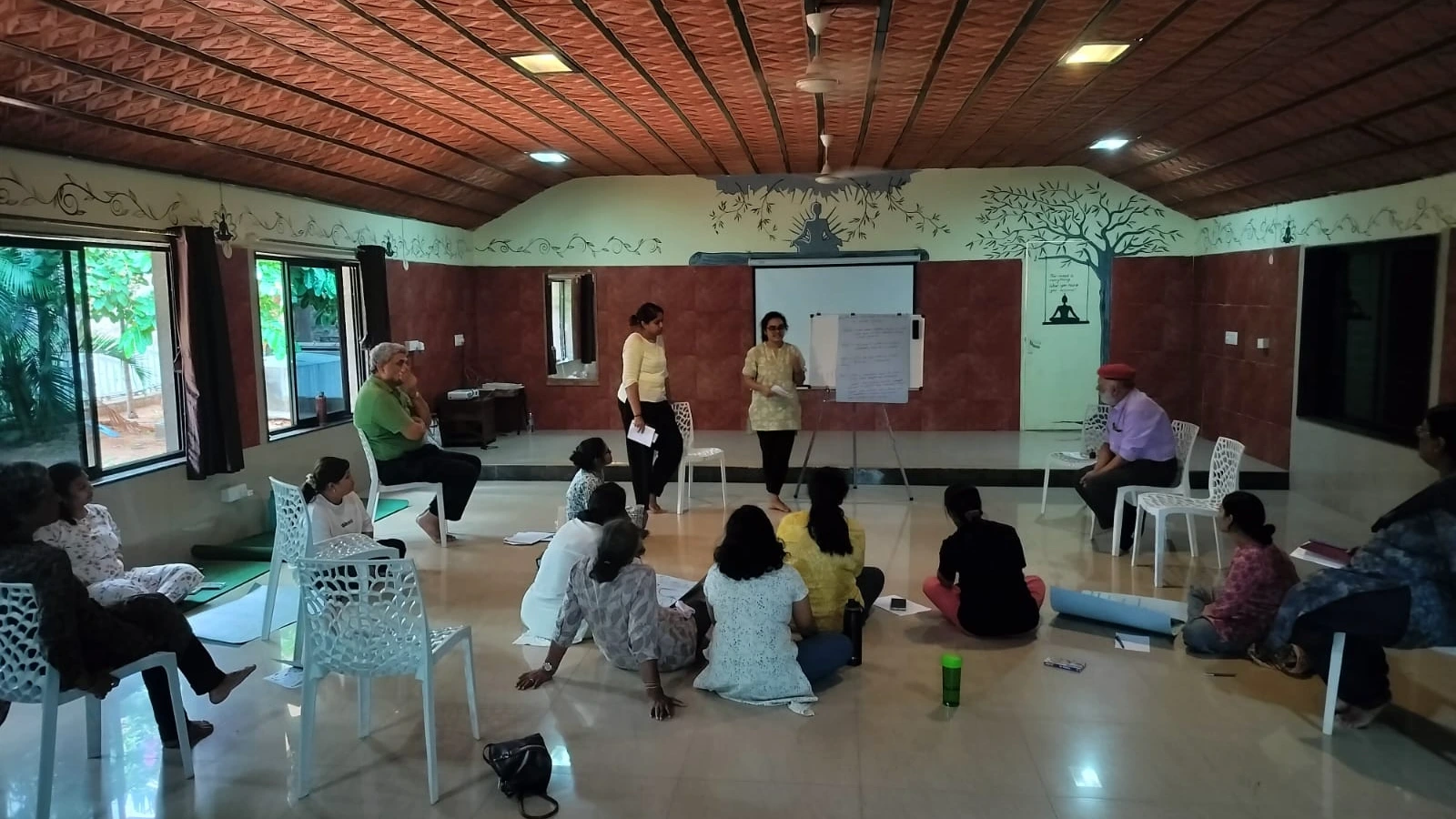
No approved comments yet. Be the first to comment!